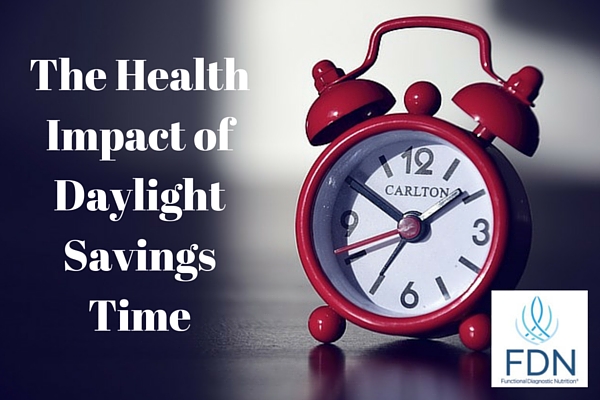While there are mixed opinions on the benefits of daylight saving time, there’s undeniable evidence that it can have a notable impact on your health.
History of Daylight Saving
Although daylight saving affects life in a variety of ways, including health and even crime, it’s original intention has always been to save money. In the late 1800s, Benjamin Franklin realized that many people were staying awake well past sunset and awaking well after sunrise. Candles were being burned late into the night while hours of sunlight were being wasted each morning. Franklin saw this as a tremendous money saving potential.
In the early 1900s, William Willet expanded on Franklin’s idea, and although unpopular, successfully lobbied it into law in Britain. Daylight saving was later adapted by the U.S. in 1918 to conserve energy during World War I. But because of it’s unpopularity, it was abandoned thereafter. In 1942, President Roosevelt reenacted daylight saving during World War II, and this lasted until 1945. From then until 1966, each state was free to choose if and how they would implement it. To eliminate some of the confusion this caused, the Uniform Time Act was signed in 1966 to enforce consistency with daylight saving for all states choosing to use it.
Circadian Rhythm
Over the coarse of millions of years, we’ve evolved to function according to the rhythm of sunrise and sunset. This is referred to as circadian rhythm. It’s well known that light and darkness each stimulate the release of different hormones that play a significant role in how the body functions. With the advent of artificial light, it’s become possible to override these natural triggers, but often at a cost to our health.
The Importance of a Regular Sleep Schedule
The body has evolved to prefer operating in a consistent rhythm. In addition to the physiological responses that are tied to sunlight and darkness, the body trains itself to trigger the same responses as sunlight and darkness based on rhythm. For example, this is why some people who typically wake up early in the morning will have trouble sleeping longer after going to bed late. Their body has become accustomed to waking up at a certain time and will favor this pattern until it’s disrupted enough to be changed.
These disruptions are stressful to the body and often result in loss of sleep. In turn, fatigue and impaired immunity are just a few of the problems that may result, and if this continues indefinitely, it can lead to severely compromised health and major disease.
The Effect of One Hour
Research shows that there’s a significant increase in the number of heart attacks that occur during the week following the first day of daylight saving. Furthermore, auto insurance statistics indicate a significant increase in car accidents as well. All of this is caused by the majority of the country being woken up one hour earlier than normal! That clearly underscores the vital importance of maintaining a consistent sleep pattern.
Consistent Sleep Equals Better Health
It can take days or even weeks to fully acclimate to daylight saving time and the adjustment can be particularly difficult for people who have sleep disorders. That’s how sensitive the circadian rhythm of your body can be. Imagine the stress you’re causing if your weekend sleep schedule differs dramatically from the workweek. Despite all the attention given to the health effects of daylight saving, the chaotic sleep schedule that many people impose upon themselves each week goes unnoticed, and in my opinion, is a far greater issue.
Maintaining a consistent sleep schedule every day of the week, including weekends, promotes better health by relieving the stress of a disrupted rhythm. It will promote better energy, better sleep, stronger immunity, and will make it easier to fall asleep and wake up. Following a regular sleep schedule is just one of the many good sleep habits that will improve your health.
Obviously, it’s not always practical to maintain this type of schedule. Many of us have to wake up early for work, and on weekends, we often engage in social activities that require us to stay awake past our typical bedtime. In accordance with the 80/20 rule, this is acceptable, but the key is to moderate. There’s no point in staying up late on a Friday night to merely watch television just because you don’t have to get up early the next morning.
Adjusting to Daylight Saving
Some people are resilient and can handle the one hour shift in their sleep schedule without much issue. However, by going to bed an hour earlier than normal, other people will just lay in bed without being able to fall asleep. They may end up getting even less sleep than if they went to bed according to their normal rhythm and woke up an hour earlier due to the adjusted daylight saving time.
If the one hour adjustment is an issue for you, try adjusting your sleep schedule in smaller increments over the coarse of several days. For example, if you normally go to bed at 10 PM and wake up at 6 AM, after the clocks are moved ahead, you can go to bed and wake up 15 minutes earlier each day. Since your body would perceive the next day’s bedtime as 11 PM, you can go to bed at 10:45 PM, then 10:30 PM the next day, and so on until you return to 10 PM. If you’re forced to get up at a certain time each morning, it may be preferable to start this process a few days before the clocks are adjusted to minimize the amount of sleep lost.
An Ideal World
Unfortunately, many of us are slaves to our alarm clocks. In an ideal world, we’d go to bed at a reasonable time and would wake up naturally, most likely at sunrise. Although this is often unrealistic, it’s something we should all strive for. If you must use an alarm clock, a great way to wake up more naturally is to use a sunrise alarm.







